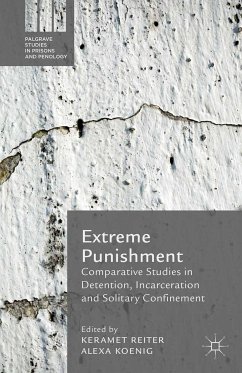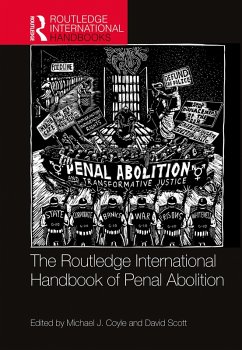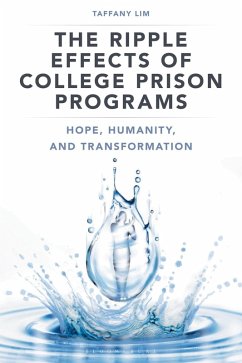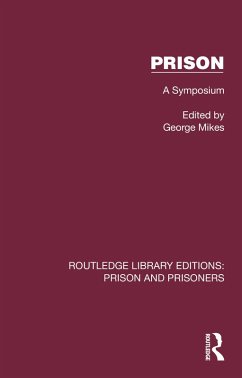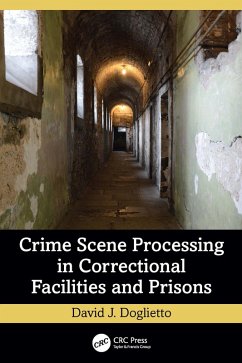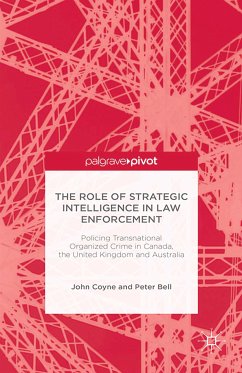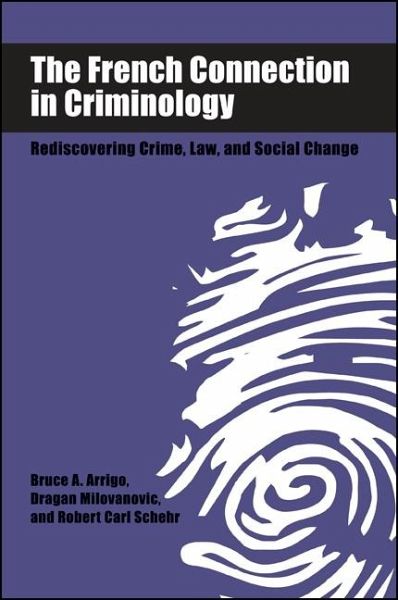
The French Connection in Criminology (eBook, PDF)
Rediscovering Crime, Law, and Social Change

PAYBACK Punkte
13 °P sammeln!
Brings the insights of postmodernism to the concerns of criminology and includes examples of how social theory can function in the real-world realm of criminal law. Winner of the 2005 Outstanding Book Award presented by the Crime and Juvenile Delinquency Division of the Society for the Study of Social ProblemsWinner of the 2005 Outstanding Book Award presented by the Crime and Juvenile Delinquency Division of the Society for the Study of Social Problems This is the first comprehensive, accessible, and integrative overview of postmodernism's contribution to law, criminology, and social justice....
Brings the insights of postmodernism to the concerns of criminology and includes examples of how social theory can function in the real-world realm of criminal law. Winner of the 2005 Outstanding Book Award presented by the Crime and Juvenile Delinquency Division of the Society for the Study of Social Problems
Winner of the 2005 Outstanding Book Award presented by the Crime and Juvenile Delinquency Division of the Society for the Study of Social Problems
This is the first comprehensive, accessible, and integrative overview of postmodernism's contribution to law, criminology, and social justice. The book begins by reviewing the major contributions of eleven prominent figures responsible for the development of French postmodern social theory. This "first" wave includes Roland Barthes, Jean Baudrillard, Hélène Cixous, Gilles Deleuze, Jacques Derrida, Michel Foucault, Félix Guattari, Luce Irigaray, Julia Kristeva, Jacques Lacan, and Jean-François Lyotard. Their respective insights are then linked to "second" wave scholars who have appropriated their conceptualizations and applied them to pressing issues in law, crime, and social justice research. Compelling and concrete examples are provided for how affirmative and integrative postmodern inquiry can function meaningfully in the world of criminal justice. Topics explored include confinement law and prison resistance; critical race theory and a jurisprudence of color; media/literary studies and feminism; restorative justice and victim-offender mediation processes; and the emergence of social movements, including innocence projects and intentional communities.
Winner of the 2005 Outstanding Book Award presented by the Crime and Juvenile Delinquency Division of the Society for the Study of Social Problems
This is the first comprehensive, accessible, and integrative overview of postmodernism's contribution to law, criminology, and social justice. The book begins by reviewing the major contributions of eleven prominent figures responsible for the development of French postmodern social theory. This "first" wave includes Roland Barthes, Jean Baudrillard, Hélène Cixous, Gilles Deleuze, Jacques Derrida, Michel Foucault, Félix Guattari, Luce Irigaray, Julia Kristeva, Jacques Lacan, and Jean-François Lyotard. Their respective insights are then linked to "second" wave scholars who have appropriated their conceptualizations and applied them to pressing issues in law, crime, and social justice research. Compelling and concrete examples are provided for how affirmative and integrative postmodern inquiry can function meaningfully in the world of criminal justice. Topics explored include confinement law and prison resistance; critical race theory and a jurisprudence of color; media/literary studies and feminism; restorative justice and victim-offender mediation processes; and the emergence of social movements, including innocence projects and intentional communities.
Dieser Download kann aus rechtlichen Gründen nur mit Rechnungsadresse in A, D ausgeliefert werden.





